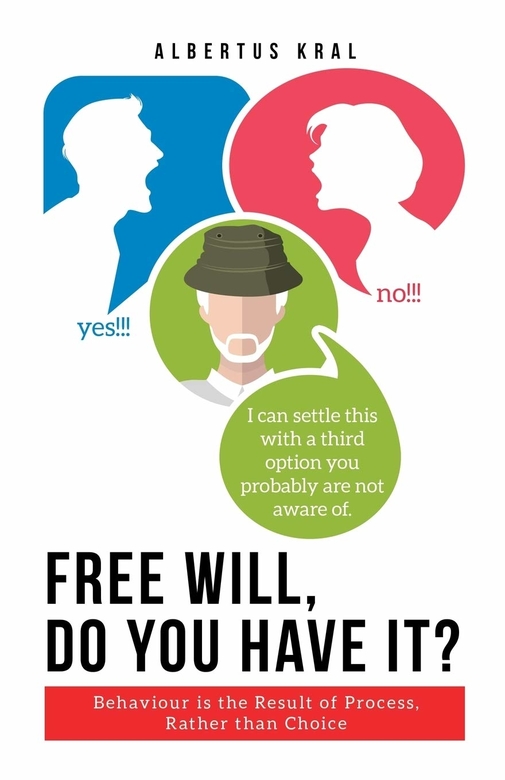
A brain-bending dive into the philosophy of personal choice and autonomy, Free Will, Do You Have It? by Albertus Kral is a fascinating presentation of the author’s personal theory of Procirclism.
The idea, in short, is that cyclical behavioral processes are developed and strengthened in every individual, based on the specific stimuli they experience. Each stimulus acts as a tiny variable in a process that is perpetually developing in our mind based on memories and prior reactions/behaviors. Essentially, Kral is attempting to explain why humans behave in particular ways, and what factors lead to a person’s ultimate decisions, which he outlines well in this provocative and in-depth exploration of his theory.
Kral poses a laundry list of abstract questions to frame this issue – questions related to purpose, predictable behavior, choice, control, identity, and internal motivation – all of which help him guide his own thought process and journey towards clarity. Drawing from his own life and decades of observations, along with broader patterns in society and human behavioral sciences, his arguments and explanations are sound, albeit overly simplified at times.
An analysis of cause and effect that can accurately explicate free will, and how it manifests across humanity, does not exist, but the author makes a strong case for his idea, through extended metaphors, scientific research, and proposed thought experiments. There are some other large-scale ideas that are wrapped up in the book, including capitalism, systemic structures in America and elsewhere, and the negative results that can come from such rigidly immovable stimuli, further broadening his approach. From the microcosm to the macrocosm, Kral works towards a unifying theory that can finally answer the question that started his whole journey more than 30 years ago.
Presented in a logical structure that introduces scientific concepts and details as necessary, the book is designed intuitively. The final chapters on awareness, perception, and will are particularly interesting, and push more into the philosophical aspects of this subject, which some readers may find more accessible than the denser, earlier chapters about brain processes and stimuli. As a whole, this author makes a compelling argument, with logical parallels to other areas of study that we collectively accept.
However, presentation and execution in a work of this magnitude is incredibly important, and from the inaccurate use of superlatives to non-scientific rigor when making arguments, there are numerous areas where the book’s credibility suffers. Most of these weak points could be identified and corrected by an editor, but a more consistent and authoritative tone throughout the book would add to its sense of validity. The lack of other works cited or research material is also a point of concern. A book that makes such large claims, and seeks the validation of a new theory, would be greatly benefitted by supporting details, rather than the speculation of a single individual, regardless of his experience and dedication to this topic.
Those criticisms aside, Kral successfully expounds on a truly challenging and eye-opening theory for why humans do what we do. He might not conclusively answer the age-old question of free will, but this book is an exceptional attempt, and deserves to be read.
Book Links
STAR RATING
Design
Content
Editing
Get an Editorial Review | Get Amazon Sales & Reviews | Get Edited | Get Beta Readers | Enter the SPR Book Awards | Other Marketing Services























Leave A Comment